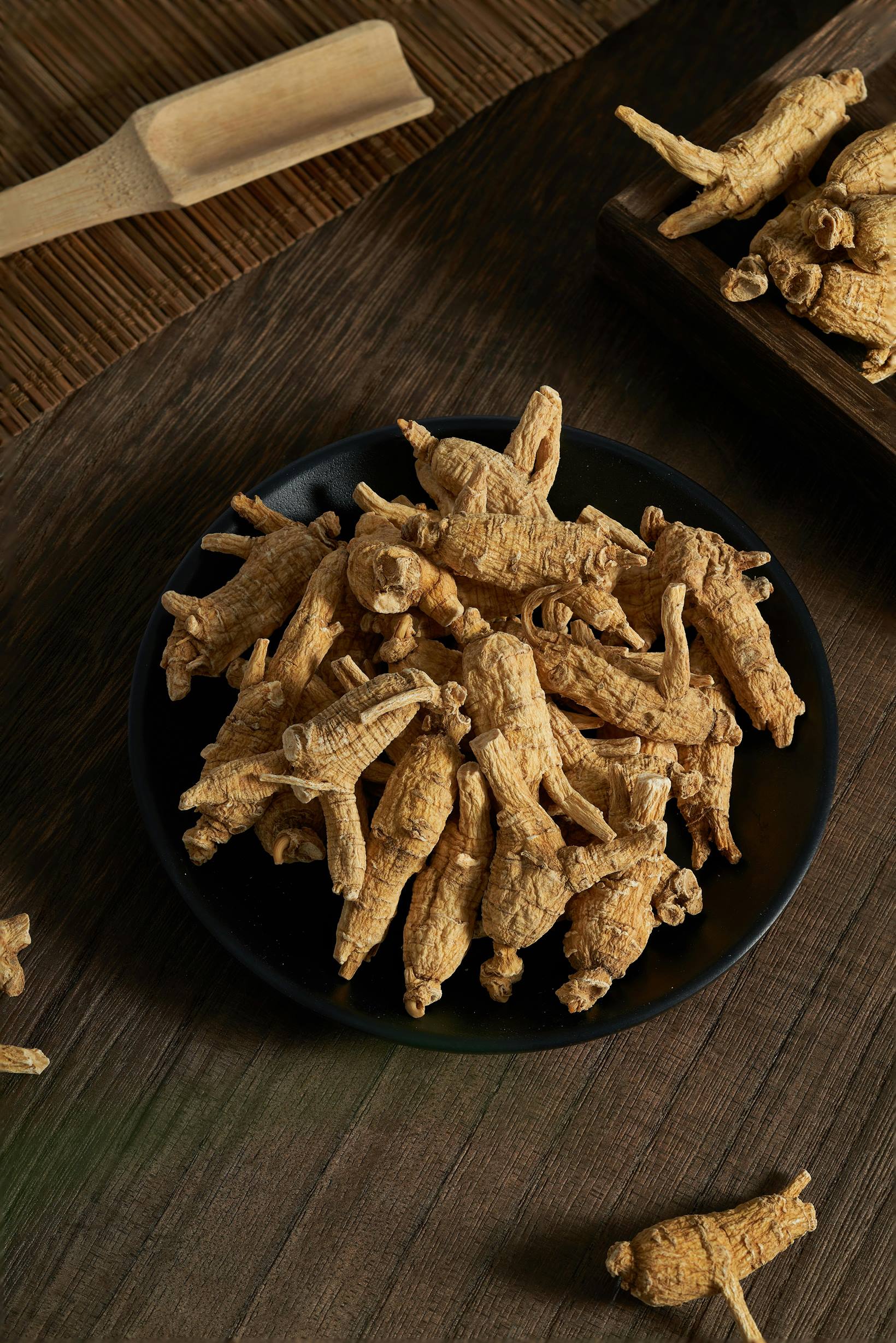

· By Diana Stobo
The Hundred-Year Root and Female Health
Introduction
Shatavari (Asparagus racemosus), often referred to as the "hundred-year root," is a cornerstone of Ayurvedic medicine, celebrated for its profound benefits in female health and wellness. Renowned for its adaptogenic, reproductive, and general health-promoting properties, Shatavari has been treasured for centuries as a natural solution for balancing hormones, enhancing vitality, and supporting women throughout all stages of life.
This report explores Shatavari's historical significance, biological composition, and its role in promoting female health and well-being.
Historical and Cultural Context

Shatavari’s name in Sanskrit means “she who possesses a hundred husbands,” symbolizing its ability to enhance female fertility and vitality. This root has been used for over a thousand years in traditional Indian medicine to:
- Support reproductive health: Especially in women of childbearing age.
- Aid in postpartum recovery: By replenishing strength and balancing hormones.
- Promote longevity and vitality: As an adaptogen that strengthens resilience to stress.
Its prominence in Ayurveda reflects its versatility, catering to physical, emotional, and spiritual health.
Key Health Benefits

- Hormonal Balance and Reproductive Health
Shatavari is particularly valued for its ability to regulate hormones, which is critical for:
- Menstrual cycle regulation: Relieves symptoms of irregular periods and PMS.
- Enhancing fertility: Stimulates ovulation and prepares the body for conception.
- Postpartum care: Aids in milk production (galactagogue) and restores hormonal balance.
- Stress Reduction and Mental Well-being
As an adaptogen, Shatavari:
- Helps the body manage physical and emotional stress.
- Reduces cortisol levels, improving mood and preventing stress-related hormonal disruptions.
- Supports mental clarity and emotional stability.
- Boosting Immune Function
Rich in saponins, antioxidants, and bioflavonoids, Shatavari:
- Protects the body from oxidative stress and inflammation.
- Strengthens the immune system, making it more resilient to infections.
- Promotes quicker recovery from illnesses.
- Digestive Support
The root has a cooling and soothing effect, making it ideal for:
- Alleviating gastrointestinal issues such as acid reflux and ulcers.
- Promoting gut microbiota balance, which is linked to hormonal health.
- Supporting nutrient absorption, essential for overall vitality.
- Anti-inflammatory Properties
Shatavari contains natural anti-inflammatory compounds that:
- Relieve symptoms of chronic inflammation, a key factor in many diseases.
- Ease joint pain, menstrual cramps, and other inflammatory discomforts.
Biological Composition
The efficacy of Shatavari stems from its rich phytochemical profile:
- Saponins: Hormonal precursors that support endocrine balance.
- Isoflavones: Plant-derived compounds with estrogenic activity.
- Alkaloids and mucilage: Promote gut and digestive health.
- Antioxidants: Combat oxidative stress and reduce cellular aging.
Scientific Validation
Modern studies support the traditional claims surrounding Shatavari:
- Hormonal Health: Research shows that Shatavari enhances estrogen levels and supports the menstrual cycle.
- Fertility Support: Studies demonstrate improved ovulation and uterine health in women consuming Shatavari.
- Stress Adaptation: Clinical trials confirm its adaptogenic effects, helping reduce stress and anxiety.
Applications in Female Health

- Pre-Menopause
- Regulates menstrual cycles and alleviates PMS symptoms.
- Boosts libido and enhances overall vitality.
- Pregnancy and Postpartum
- Improves lactation by stimulating prolactin production.
- Restores energy and hormonal equilibrium after childbirth.
- Menopause
- Alleviates symptoms such as hot flashes, mood swings, and vaginal dryness.
- Supports bone health and reduces the risk of osteoporosis.
Potential and Limitations
While Shatavari is widely regarded as safe, it may not be suitable for everyone. Individuals with estrogen-sensitive conditions or allergies to asparagus should consult a healthcare provider before use. Dosage and administration should be guided by a professional to maximize benefits and minimize risks.
Conclusion
The "hundred-year root" holds a revered place in both ancient and modern health paradigms. Shatavari’s remarkable ability to balance hormones, enhance fertility, and support overall female health makes it a vital natural remedy for women at all stages of life. Its adaptogenic properties, combined with its extensive range of health benefits, underscore its significance as a holistic wellness solution.
By integrating Shatavari into a modern health routine, women can harness its timeless wisdom to cultivate balance, vitality, and resilience.
In health and love,
Diana Stobo – Truth Bar Founder

